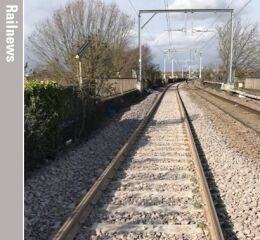Posted 20th July 2022 | 3 Comments
Train operators make bid for partnership role

Train operating companies have launched a new organisation, designed to emphasise the role of the private sector when Great British Railways takes over in 2024.
Rail Partners is a partial replacement for the Rail Delivery Group, while the rest of the RDG’s functions, such as managing the National Rail website and Staff Travel, will move to Great British Railways.
At the launch, the members of Rail Partners called for a ‘reinvigorated public private partnership’, because GBR envisages a subsidiary place for passenger operators as tightly-controlled concessions, with comparatively little commercial freedom.
They said the expertise of the private companies ‘can deliver for passengers, freight customers and the economy’.
A prospectus called Working Together for a Better Railway sets out five priority areas for reform ‘to create a thriving railway that will benefit passengers and freight customers as well as the clients who commission services and taxpayers’.
Rail Partners chief executive Andy Bagnall was previously chief strategy officer at the Rail Delivery Group. He said: ‘The industrial turbulence we are seeing on our railways at the moment only serves to highlight the need to secure a sustainable network for the future. Our members have previously restored our railway’s finances, driving up passenger numbers, introducing new trains and overseeing a renaissance of both the passenger and freight railway.
‘As we emerge from the pandemic, the expertise, innovation, and appetite exist within the private sector to replicate and surpass this previous success.
‘Rail Partners and its members share the government’s ambition for rail. To make it a reality, we need a renewed, improved and reinvigorated public private partnership, where operators are empowered to do what they do best, not only in the interests of the industry and its people, but to the benefit of the nation as a whole.’
Reader Comments:
Views expressed in submitted comments are that of the author, and not necessarily shared by Railnews.

david c smith, Bletchley
Yes indeed , Whitehall / Westminster seem to want a monolith where top- down decisions are all under government control, and TOCs just manage day to day implementation.
There is an historical stand off between "small government" and "large gvernment " in the political realm. Are the politico's arguing over the wrong thing ? Maybe what we need is a change of government "modus operandi", rather than of size. Instead of direct controls, " hidden " costs and benefits in transport should be best represented through a set of incentivising subsidies and charges , leaving TOCs to make their own decisions within such a stucture. DfT could make managing this structure its main funtion.
Colin Redman, Rugby
Oh dear, another top heavy chocolate tea pot organisation?
Despite previous select committee reports, micromanagement of railways by the DfT isn't going to go away. Rules, more ridiculous than under franchising are going to hamper any organisation representing operators.
The DfT need to realise the emphasis has shifted from business to leisure travel, and therefore a common approach is needed by parter organisations to win more passengers to rail, resulting in fewer car miles.
Unfortunately, given the intransigent cost and risk-averse thinking the emanates from Government, our railways will sink into further decline due to fewer trains, fewer ticket offices and unaffordable ticket prices, and Mr Bagnall's dream of a thriving railway will remains as a dream, sadly.
I hope I am wrong.
david c smith, Bletchley
Over the 28 years of what a prominent commentator described as "pretend capitalism", the" privatised"passenger railway has progressively become more and more of a "dog's dinner". It seems that trying to make all rail activity uniformally a kind of Whitehall controlled entity with very limited opportunity for any other inputs of ideas / innovation or of investment capital.
Sectorisation , a few years ago enabled different kinds of operations to be treated differently ; the general reaction at the time appeared pretty positive.
Bringing up to date, there are identifiable classes of operation , such as the commuter / suburban in the "city regions" , which are captive market natural monopolies . Should we place each of these in local direct- democratic public ownership ?
I ntercity and long distance operations, though, would thrive best in a "real capitalism " environment , run competively , for profit .
The really useful thing that DfT could do would be to put in place a series of subsidies and charges to incentivise TOCs to take into account "hidden" costs and benefits.
This is only a look at passenger operations, but i'd back a "horses for courses"approach more generally.